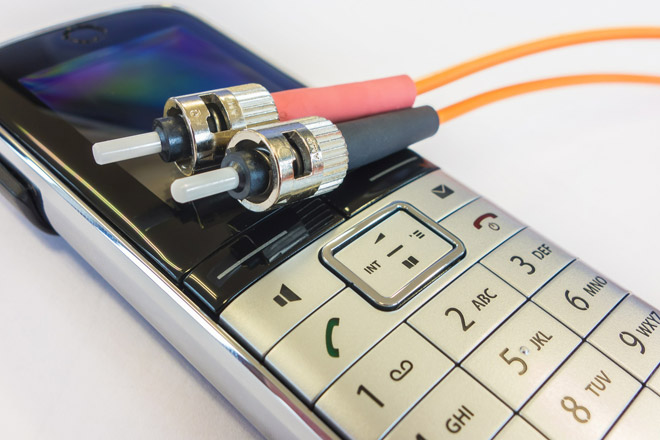The infrastructure package, internet networks and a Westchester firm
Both New York state and Connecticut would each receive a minimum of $100 million under the federal government”™s bipartisan Infrastructure Investment and Jobs Act to help provide broadband coverage across those states, a White House spokesperson told the Business Journal.
The White House said that 13% of New York households are not signed up for internet service and 186,754 New Yorkers do not have high-speed service. In Connecticut, 12% of the households do not subscribe for internet service and 27,000 people in the state only have lower-speed service.
 The infrastructure package provides an Affordable Connectivity Benefit, designed to help low-income families afford internet access. In Connecticut, 654,000 people or 18.7% of the population would be eligible for the benefit while in New York the number would be 5,375,000, representing 28% of the state”™s population, according to the White House.
The infrastructure package provides an Affordable Connectivity Benefit, designed to help low-income families afford internet access. In Connecticut, 654,000 people or 18.7% of the population would be eligible for the benefit while in New York the number would be 5,375,000, representing 28% of the state”™s population, according to the White House.
Having the federal government put its money where many mouths have been over the years is expected to have a practical effect on the growth of broadband access while also providing a Harrison-based company with affirmation that it has been on the right path by helping promote the cause of broadband connectivity.
The public relations and marketing firm Harrison Edwards has among its specialties providing services to the fiber-broadband industry. It is involved in aspects such as political advocacy, stakeholder engagement, branding, advertising and organizing events.
Bob Knight, COO and executive vice president at Harrison Edwards, heads the firm”™s broadband activities and has even shared some of his expertise with the White House on how federal funds could provide greater flexibility in helping upgrade the nation”™s networks. He”™s on the Ridgefield, Connecticut, Economic & Community Development Commission and chairs the public officials committee for the Fiber Broadband Association based in Washington, D.C.
“At Harrison Edwards, we represent internet service providers, the owners of the fiber networks, the engineering companies, nonprofits who are looking to grow in the space, companies who are looking to build smart cities and partner with municipalities and we”™re involved with clients with projects in 18 states and Australia and Canada,” Knight told the Business Journal. “We also represent electric utilities that are deploying broadband in some of the nation”™s more rural areas.”
“In Westchester, we”™re mostly known for real estate and economic development work, work with health care and with senior living and with nonprofits,” Knight said. “Outside of Westchester we”™re very well known in the fiber-broadband space.”
Knight said that even before the pandemic and the shift to working or schooling at home the country had a growing need for internet bandwidth.
“Our homes have more interconnected devices than ever before. I count in my home close to 70 connected devices, including light bulbs, security cameras, mobile devices, tablets, gaming consoles, connected appliances. All of that saps bandwidth, not to mention everyday computer usage,” Knight said.
“We”™re all taking from the same fire hose and the analogy is that the water pressure is reducing. There”™s not enough capacity in our broadband networks in the nation right now so the need is very strong to build fiber.”
“When you get up to Sullivan and Ulster counties the number gets larger,” Knight said. “Nationally, it”™s estimated that about 35% to 45% of the nation does not have access to broadband service either because of cost or availability.”
He pointed out that while people can deal with a loss of electrical service for a few hours or replace lost water service with bottled water, a loss of internet service effectively isolates people from the world unless they can get service through a working cellphone tower, satellite system or can find a working access point at a friend”™s house or location that”™s open to the public.
“If your internet goes out you lose access to work, you lose access to communicating and being in touch with each other. It”™s a vital piece of infrastructure for our nation,” Knight said.
Knight said that the $65 billion in the bipartisan infrastructure package that would be devoted to expanding broadband service in the U.S. is a great start, but that it will probably take $100 billion to bring about universal coverage. He said that rural areas in particular are screaming for reliable high-speed internet service.
“We represent Utopia Fiber, which is the largest most successful open access network in the United States. They”™re based in Salt Lake City and provide business services in 50 cities and residential services in 17.
“They have laid over 4,000 miles of fiber and have designed, built and operated $300 million worth of fiber projects since 2009 with about $100 million of that happening in the last 15 months, which I think illustrates the massive growth trajectory of the industry.
“We”™re working with companies like Fujitsu and, in Michigan, the Holland Board of Public Works and Traverse City Light and Power who are building networks within their communities and expanding networks.”
Knight said that compared with the rest of the country Westchester is doing fairly well in terms of existing infrastructure even though about 15% of the county”™s population, or about 150,000 people, lack broadband.
“I”™d like to see Westchester take a harder look at broadband networks,” Knight said. “Here in the Northeast there”™s a certain amount of apathy because our networks have historically held up pretty well. Westchester and Fairfield counties should start thinking very seriously about the telecommunications needs of the future because it is going to have a long-term impact on our economy and economic viability. People can live anywhere and they can work from anywhere now. The pandemic has shown us that.”
